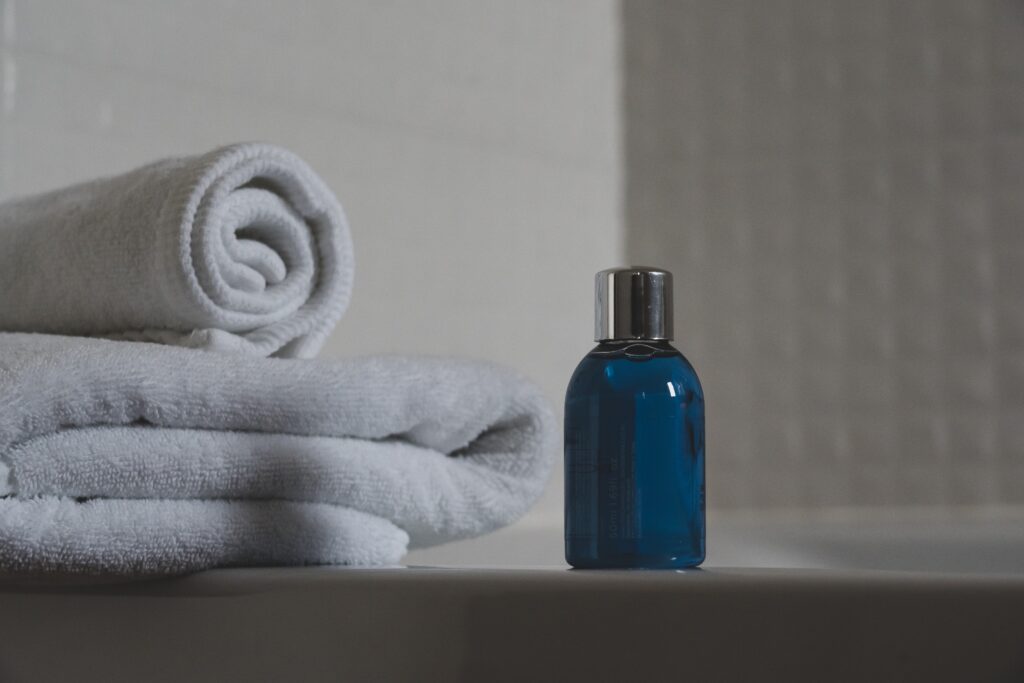
Introduction towels
The humble towels, a daily companion, are vital in maintaining personal hygiene. Whether after a refreshing shower, an intense workout, or simply drying your hands, towels are an indispensable part of our daily routine. However, frequently used towels can become breeding grounds for bacteria, fungi, and unpleasant odours if not cleaned regularly and effectively.
In this blog post, we’ll explore 20 practical ways to clean your towels at home, emphasizing the importance of maintaining cleanliness for aesthetic and hygienic reasons. From the choice of detergent to specific washing techniques, we’ll delve into the details to ensure your towels retain their vibrant colours and provide a clean and healthy user experience.
The Need for Regular Towels Cleaning
1.Bacterial Buildup: Due to their constant exposure to moisture, Towels create an ideal environment for bacteria to thrive. Regular cleaning is essential to eliminate this microbial growth and prevent potential skin infections.
2.Fungal Growth: Damp towels can also foster the growth of fungi, leading to issues like athlete’s foot or other skin infections. Proper cleaning helps inhibit fungal development, ensuring your towels remain a safe and hygienic accessory.
3.Unpleasant Odors: Towels that are not cleaned frequently may develop a musty smell, which can be off-putting. Regular washing eliminates these odours, leaving your towels fresh and inviting.
4.Longevity: Proper cleaning not only ensures hygiene but also extends the life of your towels. Regular maintenance prevents the breakdown of fibres, keeping your towels soft and absorbent for an extended period.
Colour Preservation in Towels

- Separate Colors: It’s critical to keep dark and light-colored towels separate during the washing process in order to preserve the vibrancy of your towels. It stops colour bleed and guarantees that each towel keeps its original colour.
- Cold Water Wash: When cleaning coloured towels, use cold water instead of hot water. The cold water helps preserve the colours by preventing them from fading or running.
- Use Color-Safe Detergent: Choose a detergent specifically formulated for coloured fabrics. These detergents are designed to protect colours while effectively removing dirt and bacteria.
- Avoid Overloading the Machine: Overloading the washing machine can lead to inadequate cleaning and increased friction between towels, potentially causing colour fading. Wash a moderate number of towels per load to ensure thorough cleaning.
Hygienic towels Cleaning Practices:
- Hot Water for White Towels: Unlike coloured towels, white towels benefit from a hot water wash. Hot water helps kill bacteria and ensures a thorough cleaning process.
- Baking Soda Boost: Add a cup of baking soda to the wash cycle to enhance cleaning and eliminate odours. Baking soda is a natural deodorizer and can also help soften towels.
- Vinegar Rinse: Add a cup of white vinegar to the rinse cycle for an extra boost in cleanliness. Vinegar eliminates bacteria and helps break down detergent residues, leaving your towels fresh and soft.
- Regular Washing: Aim to wash your towels every three to four uses. Frequent washing prevents bacteria buildup and ensures your towels are always ready.
- Avoid Fabric Softeners: While fabric softeners may leave towels feeling soft, they can also reduce absorbency. Skip the softener or use it sparingly to maintain the towel’s functionality.
Specific Techniques for Different Towel Types:

- Microfiber Towels: Microfiber towels, commonly used for cleaning and beauty routines, require special care. Wash them separately from cotton towels to prevent lint transfer, and use a mild detergent to maintain their effectiveness.
- Guest Towels: Towels used by guests may not see regular use. However, they should be washed periodically to prevent the buildup of dust and bacteria. Consider a quick wash every two weeks if unused.
- Beach Towels: Beach towels, exposed to sand and sunscreen, need a thorough cleaning. Shake off excess sand before washing, and use an extended wash cycle to ensure complete cleaning.
- Tea Towels and Kitchen Towels: Kitchen towels come into contact with food particles and require frequent washing. Wash them separately from personal towels and avoid using them for extended periods between washes.
Additional Tips for Towels Care:
- Sun-Drying: Whenever possible, allow your towels to air-dry in the sun. Sunlight has natural antibacterial properties and can help maintain freshness.
- Rotate Towels: Rotate your towels often to ensure even wear and tear. This keeps some towels from being overused while keeping others in mint condition.
- Inspect Towels Regularly: Inspect your towels for signs of wear, such as fraying edges or weakened fibres. Replace towels as needed to maintain optimal hygiene and functionality.
Conclusion
In conclusion, the key to clean and vibrant towels lies in proper cleaning techniques, regular maintenance, and understanding the unique needs of different towel types. By implementing these 20 practical ways to clean your towels at home, you ensure hygienic practices and extend the lifespan of your towels, making them a reliable and refreshing part of your daily routine.



